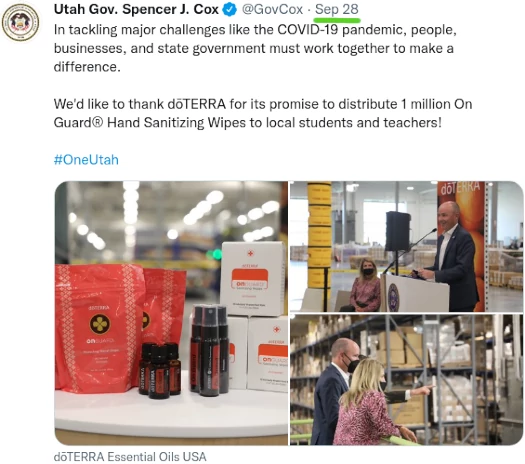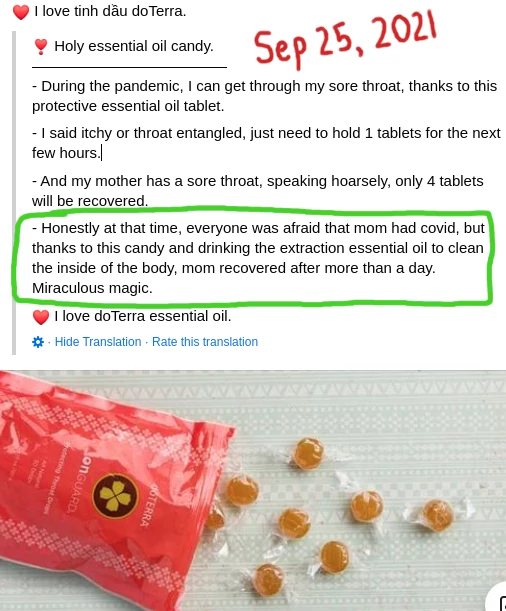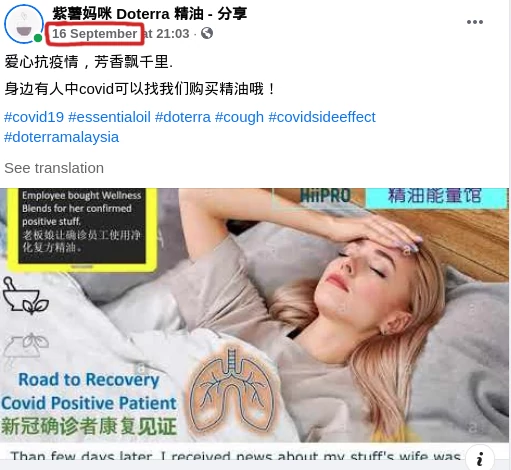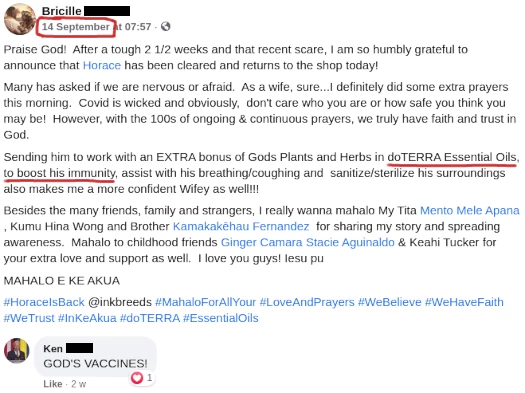Utah Governor thanks doTerra for COVID-19 protection?
![]() When I saw the headline “Utah’s governor highlighted a controversial essential-oil MLM as a way to protect school kids from a COVID-19”, I did a double-take.
When I saw the headline “Utah’s governor highlighted a controversial essential-oil MLM as a way to protect school kids from a COVID-19”, I did a double-take.
In April 2020 the FTC warned doTerra about false COVID-19 marketing claims. Surely the Utah Governor wasn’t perpetuating these claims?
Thankfully, he wasn’t. Although there still might be cause for concern.
On September 28th Utah Governor Spencer J. Cox tweeted out:

Thankfully the post refers to doTerra’s “sanitizing wipes”, not their essential oils.
The FDA states that
washing our hands with soap and water, for at least 20 seconds, continues to be one of our best defenses to prevent the spread of COVID-19.
In the event soap and water isn’t available, the FDA
recommends consumers use an alcohol-based hand sanitizer that contains at least 60 percent alcohol.
According to their website, doTerra’s On Guard Sanitizing Wipes ” contain 70% ethyl alcohol”.
Taken for what it is, I don’t have a problem with doTerra donating sanitizing wipes to schools.
The cynic in me can’t help but see this is a way for doTerra to associate their brand with COVID-19 – which brings us back to the FDA complaint.
It’s not much a jump from sanitizing wipes that do actually work, to fraudulent medical claims being made about other doTerra products.
Exhibit A:

Exhibit B:

Exhibit C:

These three examples took me about 2 minutes to find.
Unfortunately this isn’t the first time doTerra has sought to associate themselves with a medical condition.
In late 2019 the company announced a $5 million donation to St. Elizabeth Healthcare in Cincinnati.
In exchange, the hospital provides doTerra with access to its cancer patients.
Quoting research by Vote Smart, Business Insider additionally reports “doTerra International donated $10,200 to (Governor) Cox”.
All up, I think anyone objectively looking at this can agree it’s not a good look.

